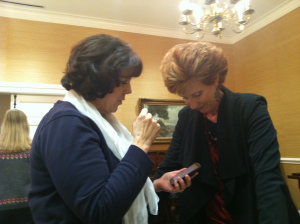A Tale of Two Women: The End.
“Great is the art of the beginning, but greater is the art of the ending” (Longfellow).
What do fairytales and romantic comedies have in common? Happy Endings. Who doesn’t love a happy ending? I know I do. I’m right in the middle of Shakespeare’s tragedy, Hamlet, with my high school writing class, and oh, it does not end well. Today, we move to 1 Samuel 1:8-20, where we see Hannah reach the end of a very long trial. It is a happy ending.
If you are like me, you’ve experienced some endings in life that aren’t exactly what you’d call a “happy ending.” No, they are necessary endings, as Dr. Henry Cloud has shown us. Today, I want to encourage you with several thoughts from his work on necessary endings. “Why endings?” he writes, “Whether we like it or not, endings are a part of life. They are woven into the fabric of life itself, both when it goes well, and also when it doesn’t. On the good side of life, for us to ever get to a new level, a new tomorrow, or the next step, something has to end. Life has seasons, stages, and phases. For there to be anything new, old things always have to end, and we have to let go of them. Getting to the next level always requires ending something, leaving it behind, and moving on. Growth itself demands that we move on. Without the ability to end things, people stay stuck, never becoming who they are meant to be, never accomplishing all that their talents and abilities should afford them. There are relationships that should go away, practices and phases that must be relinquished, and life stages that should come to an end to open up the space for the next one. Or sometimes it is not the relationships we need to end but the behaviors–destructive patterns and practices that hold us back. In many contexts, until we let go of what is not good, we will never find something that is good” (Cloud, pp. 7-8).
Wow. I can’t thank my friend, Colleen, enough for sharing this book with me. I’ve read and reread that portion a hundred times. Why? Because I hate endings. Especially the not-s0-happy-often-misunderstood type. Just this past August, Rob and I ended our eleven year relationship with our home church. We didn’t know that last Sunday we attended would actually be our last, but as we walked out, hand-in-hand, we looked at each other and both said, “We have to move on.” In no uncertain terms, we both knew we were “stuck” (as Cloud mentions) and that we were not becoming who we were meant to be. One ending that would open the space for the next movement of God in our lives. Our eleven years in that community of faith strengthened our faith, enlarged our capacity to both understand and teach the scriptures, and gave us lifelong friendships with many people. But, God said, “Move on.”
After several months of prayer and seeking, we found a new community of faith, and last night, I was privileged to move into a new beginning. Sitting amid an incredible gathering of women, I reflected on the incredible goodness of my heavenly Father, whose timing is impeccable. Strangely, I felt right at home. A feeling I wasn’t sure I would ever feel again. Ah, fresh starts. New beginnings. I just love them.
Perhaps there is a necessary ending looming in your life. Is it a destructive behavior or pattern? I know I had many that needed to end. Take a few moments to read through Hebrews 12:1-2. Circle “author” and “finisher” (perfecter). What do you need God to author in your life? finish in your life? Well, today is the day. Cry out to God. Let him bring them to an end so you can move forward to a fresh start!
[vimeo http://vimeo.com/36511252]

